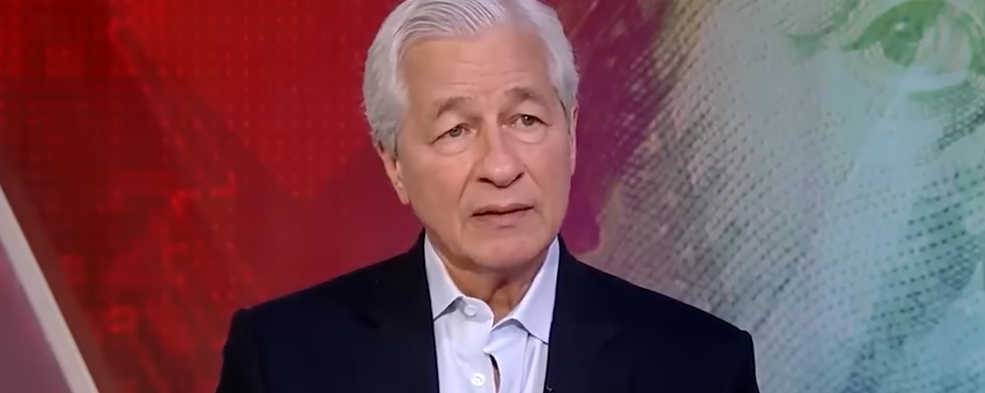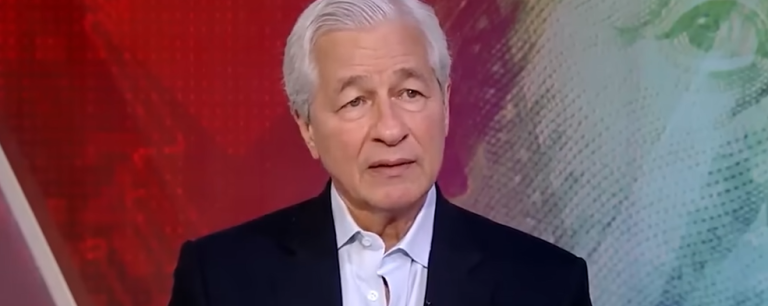Jamie Dimon’s 2024 salary of an astounding $39 million is a particularly glaring example of how performance-based compensation is increasingly being used to assess corporate leadership. This sum, which includes a base salary of $1.5 million, a cash bonus of $5 million, and $32.5 million in variable share units, is more than just a reward; it’s a message. In a year characterized by record profits, resurgent dealmaking, and strong investor confidence, the board of JPMorgan used Dimon’s raise to convey strength, continuity, and prudent risk-taking.
Dimon’s package increased 8.3% over 2023, which was remarkably close to JPMorgan Chase’s profit growth during that time. An end-of-year surge in capital markets and increased trading revenues helped the bank, which is the biggest lender in the United States by assets. Closely linked to those results, Dimon’s compensation illustrates the growing alignment between institutional performance and executive compensation, a trend that has gained popularity recently as public scrutiny of CEO salaries has increased.
Jamie Dimon: Bio and Career Summary
| Attribute | Details |
|---|---|
| Full Name | James Dimon |
| Date of Birth | March 13, 1956 |
| Birthplace | New York City, USA |
| Education | Tufts University (BA), Harvard Business School (MBA) |
| Current Role | Chairman & CEO, JPMorgan Chase |
| Tenure as CEO | Since 2005 |
| 2024 Base Salary | $1.5 million |
| 2024 Cash Bonus | $5 million |
| 2024 Performance Share Units | $32.5 million |
| Total Compensation (2024) | $39 million |
| Estimated Net Worth (2025) | $2 billion |
| Source | Reuters |
In order to structure the majority of Dimon’s compensation through long-term performance units, the board of JPMorgan has adopted a model that is both incredibly successful and becoming more and more common among large-cap companies. These units are subject to certain performance metrics, such as return on equity and total shareholder return, and vest over time. This guarantees that executives receive financial incentives to lead the organization with long-term vision rather than just rewards for short-term gains.

Regarding corporate governance, Dimon’s pay structure is remarkably transparent. It shows that JPMorgan wants to keep its leadership, which has been extremely effective and wise from a strategic standpoint. Dimon led the bank through several significant events over the last 20 years, including the 2008 financial crisis and the COVID-19 pandemic, and each time the bank emerged with a larger market share and a more varied revenue stream.
Additionally telling is the timing of the pay increase. While many industries continue to express cautious optimism regarding economic recovery, the board of JPMorgan made a particularly audacious statement. The bank’s forward-looking attitude is demonstrated by the raise, solid Q4 earnings, and institutional stability. As a result of economic resilience, a number of elite financial institutions have recently followed suit, indicating a larger trend toward increased executive rewards.
The subject of executive compensation is still divisive despite the accolades. Concern is frequently raised by critics regarding the growing pay disparity between entry-level workers and C-suite executives. However, even doubters admit that the equation is complicated in Dimon’s case. His leadership has not only preserved but also increased shareholder interests. He is known for his discipline, flexibility, and keen economic vision. His pay reflects the $39 million package offered by Goldman Sachs CEO David Solomon, which further supports the industry standard.
The thing that is most intriguing about Dimon’s career path is his continued relevance. Dimon is still incredibly powerful, often consulted on global economic affairs, financial regulation, and public policy, even though the majority of his peers have retired or moved out. Outside of Wall Street circles, his observations, which he frequently shares at gatherings such as the Economic Club of New York, are taken seriously.
Dimon has made sure that JPMorgan Chase is actively reimagining tradition rather than merely relying on it by means of strategic alliances and innovative technology investments. In navigating a rapidly evolving financial landscape, his leadership has been especially inventive, from extending digital infrastructure to making strategic moves in AI and blockchain integration.
His succession plan is starting to take shape, though it won’t happen right away. Mary Erdoes, Troy Rohrbaugh, and Marianne Lake are all possible successors who have become more noticeable within the company. Investors and analysts can expect continuity without worrying about sudden disruptions thanks to this gradual shift. Dimon has alluded to resigning in five years, which gives time for a planned transition and meticulous grooming.
Dimon’s $39 million package is in line with other financial executives’ packages, which place more emphasis on consistent performance than on eye-catching numbers. In contrast to equity windfalls linked to erratic stock options or transient incentives, his compensation is set up to recognize steady progress and stewardship. The fact that the stock of JPMorgan Chase has increased at a substantially faster rate over the last ten years than that of many of its rivals lends credence to the board’s pay philosophy.
The argument over executive pay will probably never go away, but it’s crucial to see Dimon’s pay as a component of a larger system rather than a one-off payment. Experienced executives are valuable in industries where risk reduction, strategic vision, and stable leadership have a direct impact on national economies. Despite the occasional criticism, Dimon has a record of remarkably resilient performance in extremely complex situations.
His pay is commensurate with that record. It’s closely linked to results, not because it’s big. As banking strategies and economic headwinds change in the upcoming years, the Jamie Dimon template—which is based on measured decision-making, clear succession planning, and long-term value alignment—may prove to be an especially useful model for other businesses looking to reward leadership without eroding public confidence.


